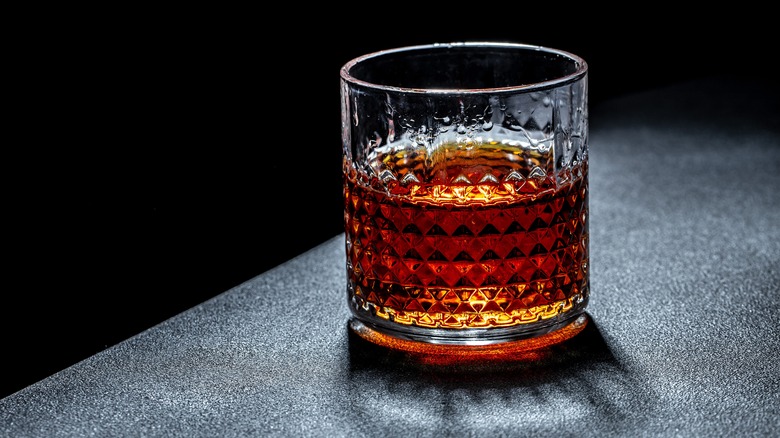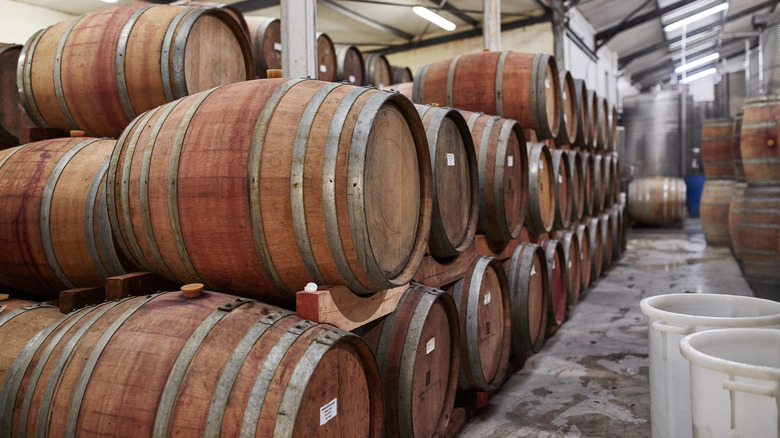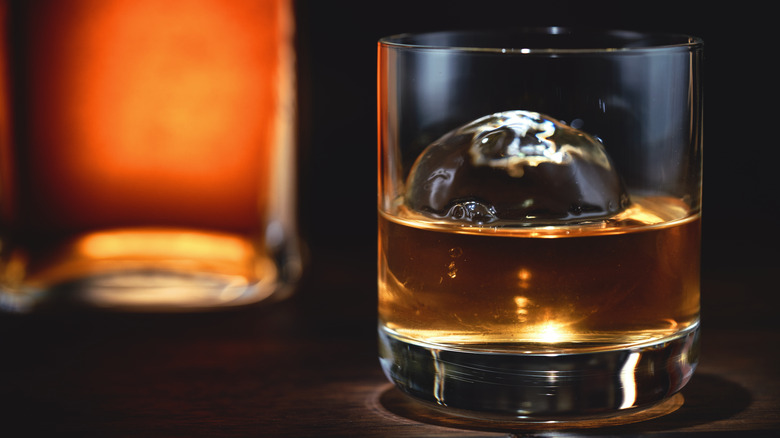What The Term 'Small Batch Bourbon' Really Means
At the heart of your favorite old fashioned, bourbon sour, or boozy bourbon-splashed chocolate cake is a barrel-aged American whiskey ready for sipping or mixing. A visit to the liquor store will reveal a wide variety of bourbons lining the shelves, each with its own characteristics. That's because, like most crafts, distilling bourbon is a passion, and experimentation to develop distinctive flavors is the norm.
Everything from barrel selection to its location in the warehouse can affect the flavor profile during production, in the same way that pairing types of ice with your bourbon can change the consumption experience once you get it home. Bourbon aficionados sip in the differences between brands, often settling on a favorite to imbibe. But even within brands, there are distinctions to consider. For example, when a label reads "small batch," what does that mean? In general, it means the product was made in limited amounts. However, there's much more to know about the process behind the term, starting and ending with how it's produced and how that's different from standard production or single-barrel offerings.
Defining small batch bourbon
The most important thing to note about the term small batch bourbon is that it has no legal definition. Accordingly, the phrase is subjective. No set number of barrels is used in a small batch, so while a large producer might use product from hundreds of barrels, a craft distiller may make a small batch from just a handful. The number of barrels the master distiller draws from may be based on personal preference, tradition, or a simple trial and error of flavors until the result is achieved.
Regardless of the number of barrels involved, the process is the same for small-batch bourbon as for standard bourbon. Both types combine samplings from a few different barrels. In the case of small batches, the combination simply comes from fewer barrels, whereas in standard production, large quantities are poured into a vat to mix them. For small batch, producers do this to pick and choose the best or distinctive flavors. While bourbon makers want to stick with the brand's primary characteristics, small batches allow them to tweak the recipe, accentuating a particular flavor or combination of notes. Small-batch bourbon typically ages longer than the standard production, and it often offers something a little special for the consumer, whether in taste or with a higher alcohol content.
How small batch differs from single barrel bourbon
To fully grasp the distinction of small-batch bourbon, you must understand how it varies from another commonly used term, "single barrel." Although they sound similar, these two phrases on a label have different meanings. Where the small batch distinction is unregulated, single barrel is clearly defined by bourbon taken from a single cask. As an ultra-limited release, single-barrel bourbon is typically individually bottled and often labeled with the barrel number and the aging dates, much like a series of limited-release artwork.
Specific barrels are chosen based on the subjective opinion of the master distiller, who takes samples from each barrel to evaluate taste profiles. When one is deemed exceptional for any reason, it's put aside to be bottled as a single-barrel bourbon. Some single-barrel selections end up being used in a small batch or even in standard production, but flagging them as something special allows them to earn the single-barrel distinction. When a bottle is labeled as a single barrel selection, it indicates a one-of-a-kind offering collectors and bourbon connoisseurs may be unable to resist. On the other hand, some consumers stick with standard production to rely on a consistent flavor. Whatever type of bourbon you select, ensure you know how to store it once you get it home.


